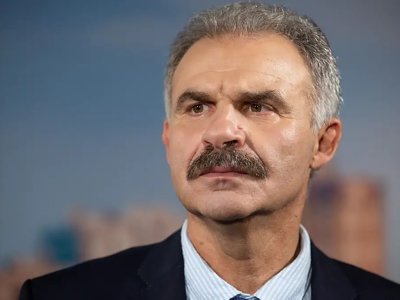New media bill: “cosmetic changes” for “tame” media

The director of the Legal Rights Media Centre public foundation, Diana Okremova, criticises the new media law as failing to protect the journalistic profession. In an interview with Exclusive.kz she also criticises the official practice of giving media organisations government contracts as a way of controlling them.
Q — What should journalists and society know about the new mass media bill proposed by the Information Ministry?
A — According to the bill, the notion of ‘mass media’ includes not only media organisations that do professional journalism but all websites. We’ve had many arguments with the [Information] Ministry over this because we believe that if the bill concerns journalists, it must cover the sphere of professional journalism only.
I think that, if the current wording remains, we will face serious difficulties. In my view, the law tries to boil the ocean by categorising all websites as mass media.
Q — Does the law solve the problem of freedom of speech in the country?
A — Unfortunately, in my view, it does not because in the current draft there are no rules that guarantee journalists’ security or protection of their professional rights.
It is one of our main problems with the bill – as usual, [if adopted] it will be a law aimed at controlling the media in the ‘best’ Soviet traditions.
It gives many powers to the Ministry, it controls what journalists cannot do and it sets out journalists’ responsibilities, but does not contain any provisions guaranteeing their security, access to information or protection of their professional rights.
Q — One of the peculiarities of our media market is that a significant share of it is shaped by government contracts. You have long been criticising the system, why?
A — Why am I against it? Because the government contracts, in essence, kill competition. In fact, 90 percent of our media organisations are private, and 10 percent are state media, and those 10 percent get about 40-50bn tenge [87-109m dollars] annually through government contracts.
It means that certain newspapers and TV channels get guaranteed funding every year, which gives them an unfair advantage over the private media, because they do not have to worry about producing quality content, finding advertisers and so on.
The system is also very corrupt, in my view, which has been proved by a recent Audit Committee report, which revealed a huge number of various breaches around government contracts given to both private and state media. Not all of those were about embezzlement, to be fair, but nonetheless they revealed inefficient use of taxpayers’ money.
Another thing is that, to put it bluntly, government contracts are used to create official propaganda content. In many European countries the state supports the media, but without editorial interference. In our case it is a controlling and influencing tool, designed to ensure loyalty to the government.
This is why for now we are calling at least for transparency around those contracts, so that the public can see how the funds are used.
Q — The bill includes the concept of information sovereignty. Is our information sovereignty protected?
A — The bill does not include any specific regulations about this. So it is just a declaration not supported by anything, which is sad.
Q — According to the Audit Committee, the government has been buying Russian television programmes.
A — Yes, there is a debate going on around this issue, and the deputy information minister denies it, saying it is manipulation and a blatant lie.
But the fact is that we do buy Russian TV content, which, the Audit Committee says, means that we are re-broadcasting Russian society’s issues, which is against the government’s own media policies.
Q — Is there any point in adopting the bill in its current wording?
A — If it is adopted as it is, I think everything will remain the same, except for a few new regulations.
It includes a few good new ones – the introduction of a limitations period for defamation suits and the reduction from seven to five days of a period within which [organisations] must respond to journalistic queries.
However, overall it includes only cosmetic changes, except the rule about a limitations period, and won’t change the situation significantly.
The government does not want fundamental changes, it is happy with how things are at the moment – the annual government contracts, the ‘tame’ media and all-around official control.
By Karlygash Yezhenova
- Последние
- Популярные
Новости по дням
3 мая 2024







